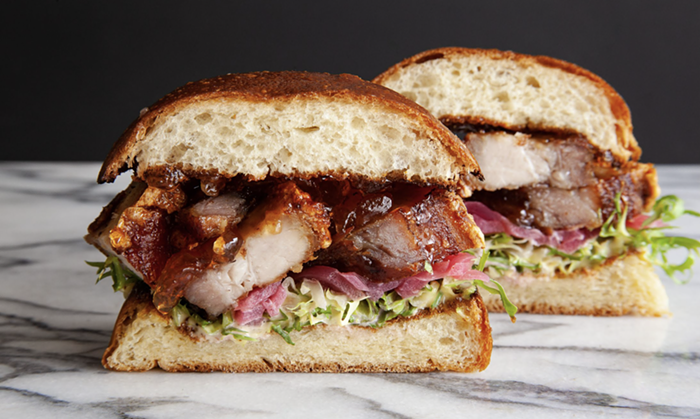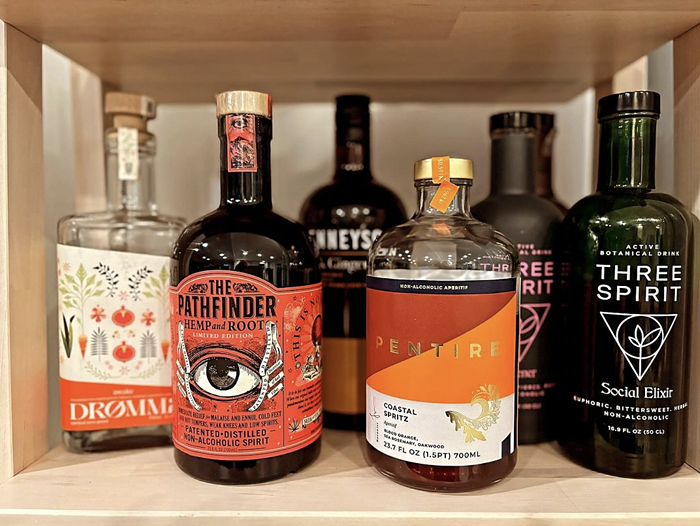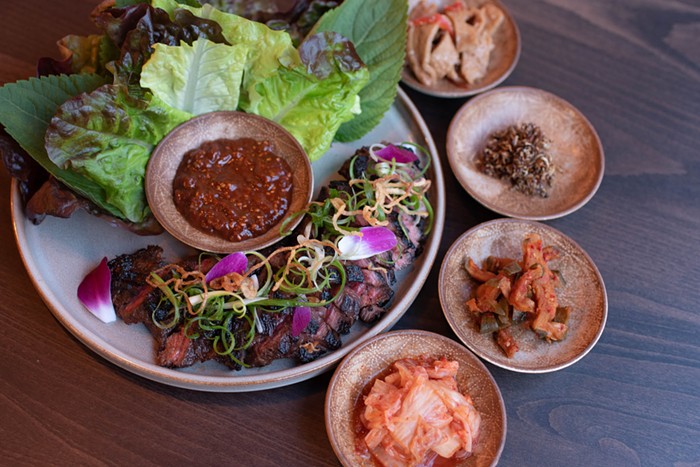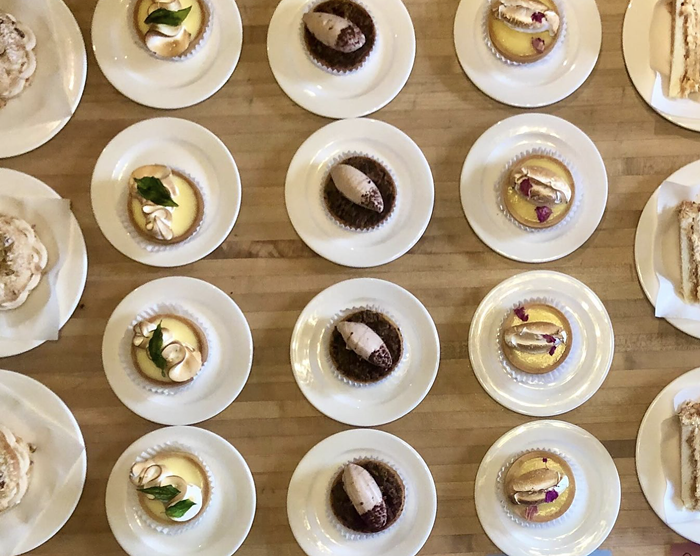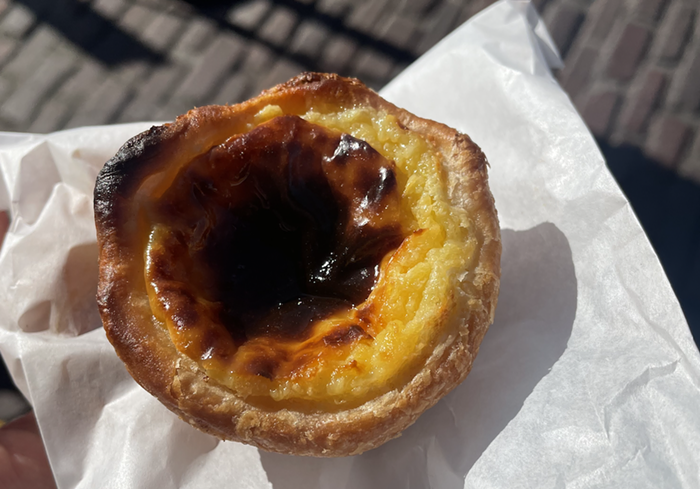Don't think you can walk into the new incarnation of La Spiga on, say, a Monday at 7:00 p.m. and get a table. The place is mobbed, and for good reason: It is soaringly, screamingly beautiful (especially compared to the former location, a low-ceilinged, self-consciously rustic room obscurely situated in the very unrustic Harvard Market development). The renovation of the 1920s Piston and Ring building is functional and inspired, old-fashioned and modern; it's a hangar made cozy by scarred wooden floors, a distant wooden ceiling. A venerable walnut tree gave its life for the bar top. Booths are upholstered in leather. There's movement and airspace and the unmistakable electricity of people actively enjoying themselves, some of them speaking Italian.
Even in its suboptimal old home, La Spiga's simple cuisine—of Romagna, land of superlative pigs, cheese, balsamic—made it a perennial favorite. That the food vanquishes cold from the inside out is surely playing a role in filling the place up now, when 7:00 p.m. feels like midnight and stuffing yourself and falling into bed sounds like heaven. If filling up is what you're after, go ahead and eat the complimentary piadina, flatbread with a pretzely taste. On its own, it's a little cardboardy (and it completely repels its accompanying balsamic and olive oil; dipping more forcefully only leads to stained cuffs). But made into big tortelli, with a thin filling of mashed potato and toppings of near-transparent mortadella and mild, house-cured pancetta, it's compelling to a dangerous degree. This is not light food; an inhuman portion of four is $12. Eat more than one at the rest of your dinner's peril.
An appetizer that's both more realistic and transportingly delicious: melanzane della Zia Irene ($7), eggplant sliced translucently thin, olive-oil soaked, and unbelievably slippery-silky under exactly-salty-enough pesto-like sauce. The eggplant, slightly metallic in the best way, makes your mouth tingle; the taste unmistakably, dramatically, evokes Italy. Pietro is La Spiga's endlessly charming host/co-owner; Irene is his aunt from Vessa, Italy; the eggplant is her recipe. "Life is beautiful," he's given to saying. You can understand why.
In the less-than-beautiful category recently: pasta. The kitchen may be barely up and running and busy as hell, but La Spiga's treasured lasagna ($12) was a gloppy, sweet-tasting, nearly amorphous mess. The ragù: overpowering. The béchamel: undetectable. The delicate house-made spinach noodles: reduced to mush. Also overcooked: chestnut tagliatelle bastarde ($12). The strands disintegrated; the hint of elasticity that makes fresh pasta the best thing ever, absent. A refire—about which the server was entirely pleasant—was worlds better, and the dish's sausage, chickpea, and spinach made for a deeply satisfying, wintery-savory flavor.
Back to beauty, of the robust kind: La Spiga's meats. (There's little fowl and no fish on the menu.) These secondi courses, like a hug from a big, bosomy woman, practically smother you in happiness. Grilled sausage ($12) offers two immense, herby patties (reportedly made by one Alberto, a mystery genius of meat in Greenwood who sells wholesale only) with grill-marked triangles of polenta served atop a lake of melted fontina cheese. It's like breakfast for the ogre/lumberjack/husband of the bosomy woman, and it is good. Braised beef cheeks ($16) are fork-tender; the polenta here, fried, is shaped like big fries for sopping up a deep, reduced sauce. It's unfussy, rich, big, and a knockout of a sleeping pill. (Braised wild-boar ribs [$16] are similar, though one order had a presumably anomalous fishy taste.)
If you have room for dessert, you have cause for alarm, but Pietro's mother's recipe for tiramisu ($5) is revelatory: The ladyfingers retain some body, for once refusing the awful role of wet cake. Likewise: an affogato ($7) involving pouring a miniature glass pitcher of brandy over vanilla gelato. It's an unrepentant sinner's version of a root-beer float.
The all-Italian wine list (which prompted an aficionado to deploy the term "winegasm," upon which said aficionado was killed) is mind-bogglingly long, with lots of high- and low-end options. Wines by the glass, however, are curiously few. Service at this still-early juncture varies wildly; a salad might go missing, dirty plates may sit on the bar, or mind-reading sweetness with perfect suggestions could occur. The occasional sense of barely contained chaos is exciting, but consistently good service would be more so. For now, it's luck of the draw, and worth it for La Spiga's many beauties.
